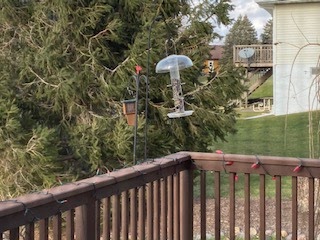Re: The caucuses ... Iowa should still fight to be first
Caucus volunteer workers make calculations, in Bettendorf on Feb. 3
While there, this Davenport-based newspaper reporter was joined by a news team from the Cedar Rapids Gazette, as well as a television station. The Whitlatch home was jammed with about 12 Democratic residents, also from the surrounding rural area, as well as all the media. After the smoke cleared, John Kerry won the most support and he went on to win the Democratic nomination.
In 2008, the scene was John Glenn Elementary School in Donahue, Iowa, for Democrats, and at Walcott School in Walcott, Iowa, for Republicans. What I remember most is the groundswell of support for then-Senator Barack Obama, with energetic young people from Chicago organizing a small-town caucus that overwhelmed the Hillary Clinton supporters.
I also recall the staid, and respectful Republican caucus in Walcott. While the Donahue residents gathered in groups around the school gym, the Walcott attendees were also in the school's gymnasium, and after a few preliminaries, voted by paper ballots placed in a wooden box. Mike Huckabee, a governor of Arkansas, won that race.
This, I would suggest, could be the future of the Iowa Caucus system. Counting bodies is a slow process by definition, and when the caucus numbers over 350 people (as it does in the metro areas) that is an arduous task for volunteers.
Iowa can be compared culturally to New Hampshire. That state has roots to 1916 as the first presidential primary of the election season.
Iowans do not go to a polling place to cast a ballot. Iowa's caucuses date to 1972 and are generally described as "gatherings of neighbors" in set locations like libraries or schools, or places like the Whitlatch home.
The fallout of 2020 continues. Troy Price, the leader of the Iowa Democratic Party, has now resigned. Among the failures is knowing he was given questionable advice about how to actually implement a faster, more electronic process. Iowa became (and remains at this writing) the butt of jokes from almost any pundit, even extending to chatter during the Academy Awards ceremony last week.
What is the alternative to Iowa? Some experts suggest Georgia, with a more balanced population. But wasn't the efficiency and equality of that state's system under fire just two years ago, when Democrat Stacey Abrams failed in a close race for the governor's seat? Republican Brian Kemp won the post by 55,000 votes, after a judicial fight about county officials who refused to count some absentee ballots.
Say what they will about Iowa, observers can point to an informed electorate, residents who turn out to hear from presidential hopefuls, rich and not-so-rich. Our state is full of affordable media advertising and in 2020, it did cull the huge Democratic field down to about five candidates.
New Hampshire did the rest. It's obviously easier in the Granite State with its long-established primary process.
Iowa's system should be open to change. Retain the "neighborhood gatherings" but consider using paper ballots for both Republicans and Democrats.
Iowa's position in the election cycle is worth fighting for.




Comments
Post a Comment